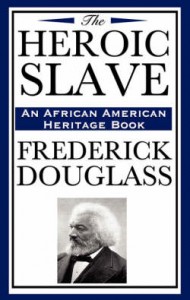
“The Heroic Slave” ostensibly breaks with the domestic imperative, basing its argument, as more than one commentator has noted, on a “masculinist logic” (Sale, The Slumbering Volcano 42). “The Heroic Slave” can be described as an invocatory narrative-one that establishes narrative authority by creating a central narrative voice to which we, as readers (and listeners), must attend. The protagonist of the text, Madison Washington, is constituted-in Lacanian terms-as a speaking being, and the narrative drive of the novella (in direct opposition to that of the slave narrative tradition) is authoritative, rather than authentic. Douglass never forfeits the idea that rights ought to be inalienable by nature, but by recognizing that rights are alienable in practice-not simply that they are often divested and withheld, but that they can be transferred to those who do not already possess them-he narrates the extralegal drama of political legitimation.įrederick Douglass’s novella “The Heroic Slave” (1853) centres on issues of narrative voice. Instead, “The Heroic Slave” uses the universalizing rhetoric of natural law to denaturalize exclusionary laws within the United States, even as it attempts to salvage the potential of US democracy. Douglass’s objective, however, is not ultimately postnational or cosmopolitan, as critics have suggested.

Reading Frederick Douglass’s fictional reconstruction of the revolt in “The Heroic Slave” (1853) in conjunction with the diplomatic letters it revises, Hyde shows how the conceit of natural law allowed writers to portray national statutes as mere “local fictions.” Whereas Secretary of State Daniel Webster symptomatically invoked the rhetoric of weather and natural disaster to negate the agency of the slaves on the Creole, Douglass uses natural phenomena to portray emancipation as a force of nature that controverts the geopolitical partitioning of freedom.

Hyde reassesses the relationship between natural and civil rights by tracking the climatological metaphors that shape representations of the 1841 slave revolt aboard the Creole, in which 135 slaves obtained freedom by redirecting a US ship to the British territory of Nassau, Bahamas.


 0 kommentar(er)
0 kommentar(er)
